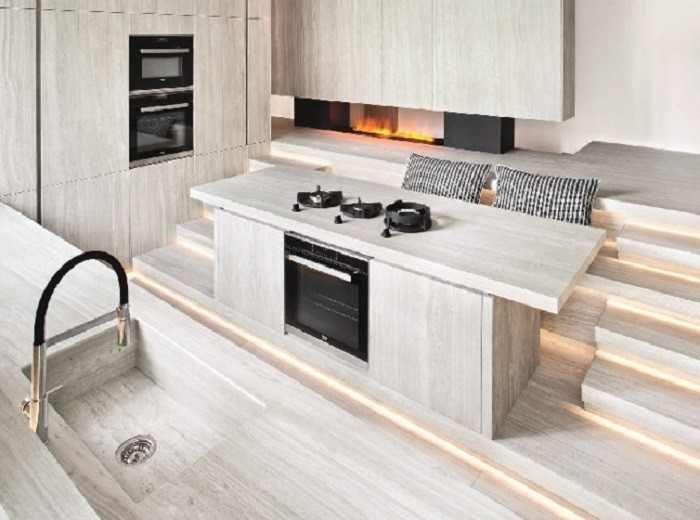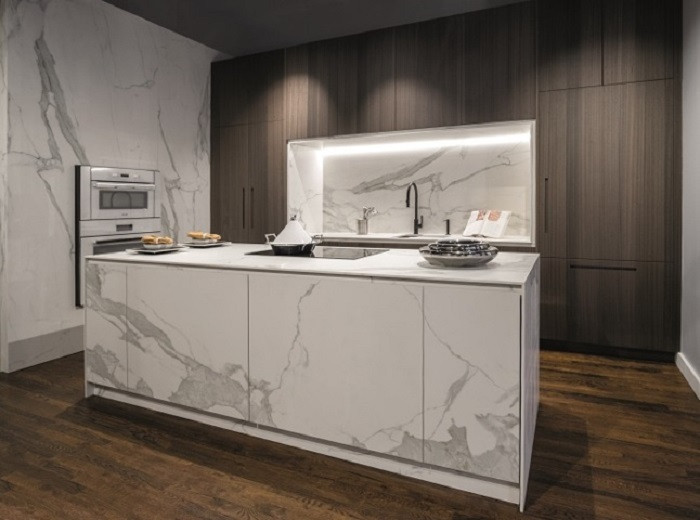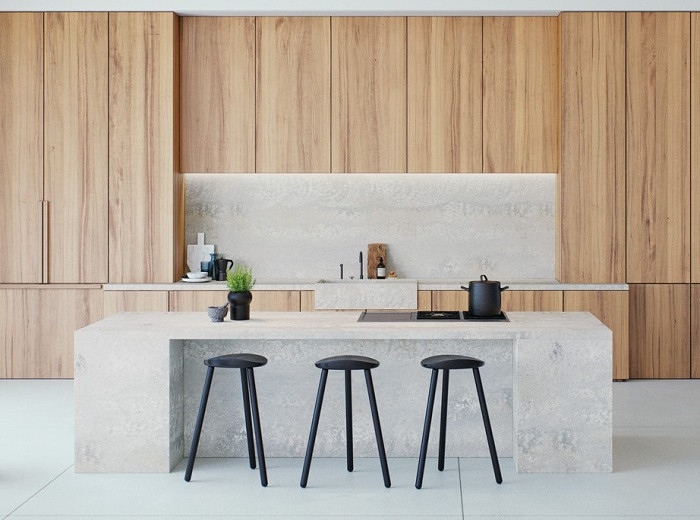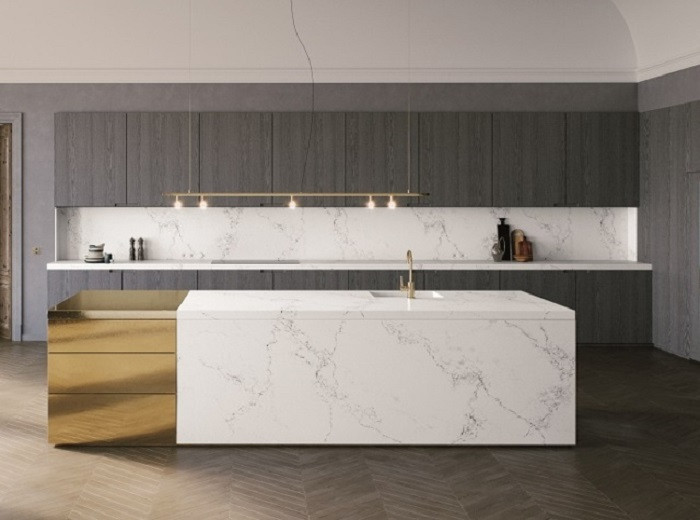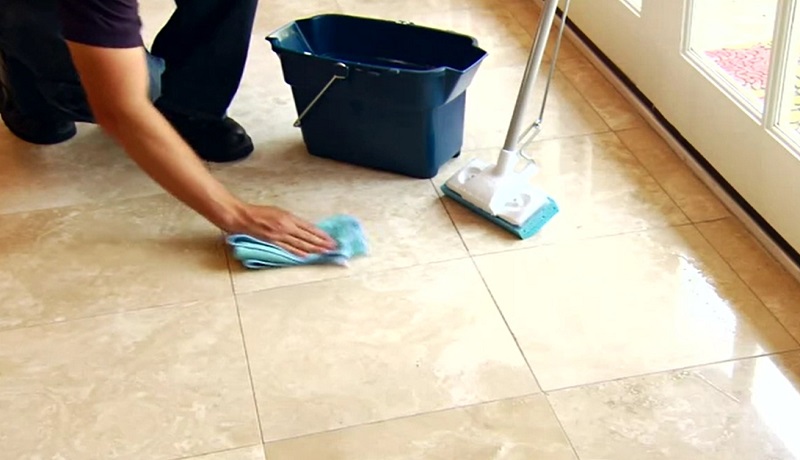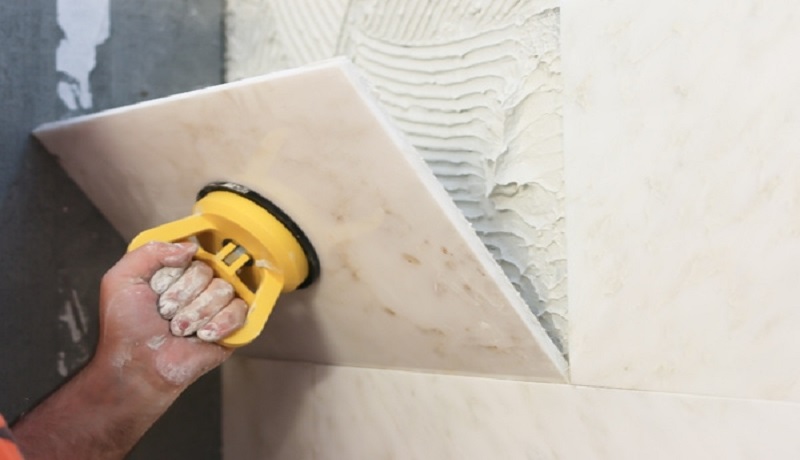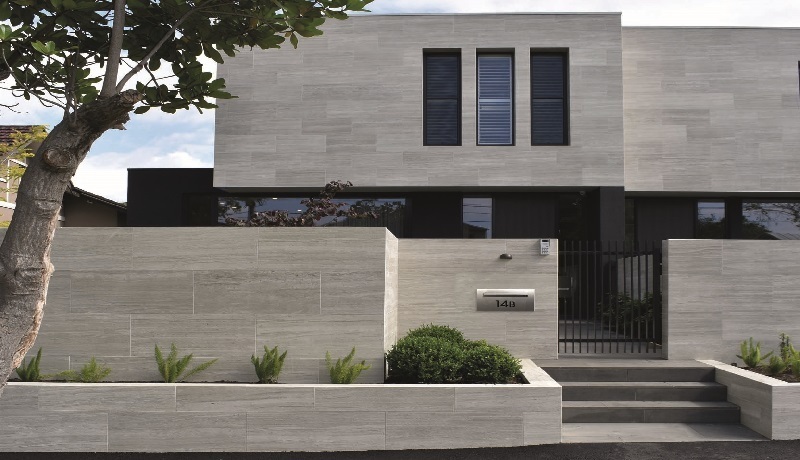
How to select Kitchen Countertop
Ms. Charul Punia
The Kitchen is the heart of the home, and your kitchen countertop is central to fine-tuning the statement you are trying to make with this most intimate of spaces. The countertop needs to be not only beautiful but also strong, durable, hygienic, and easy to maintain.
Here are some considerations to help you choose the best kitchen countertop for your home.
- Hardness: Kitchen counters are used all day, every day, day in and day out. Scratches on the surface of the counter are the biggest challenge that can compromise the look of the countertop and become a hygienic concern. Therefore, hardness is essential for a successful countertop material. On the MOHS hardness scale, where Talc is 1 and diamonds are 10, stones like Granite and Quartzite are around 6-8, and are super scratch resistant, whereas Marble or Calcite are between 3-5. Any material chosen for a countertop must be at least 5 on the hardness scale to ensure that your surface will remain scratch free, clean, and tidy.
- Strength: Some materials may have a good hardness but are still not strong materials. Hardness is a quality of the grain, whereas strength describes the quality of the entire body of the stone. Strength is important as it is needed to protect the surface from harsh impact, or blunt force. Furthermore, chipped edges on the countertop have always posed a persistent nuisance, and a stronger material has a much lower chance of being irrevocably damaged.
- Porosity: From both a hygienic and maintenance perspective, the surface needs to be non-absorbent enough to ensure that the surface remains clean, and that the structural integrity of the counter is not compromised. Non permeable surfaces will simply last much longer and offer more value for your investment. Nowadays, good quality sealers are also available and can be applied superficially using a brush or cloth. However, the lifespan of the sealant is only a few years, and rather than relying on a sealer, it is advisable to use a less absorbent surface in the first place.
- Fire resistance: Fire safety is incredibly important. Most natural stones, as well as good quality reconstituted quartz surfaces such as a Caesarstone or Neolith are fire resistant. They also can withstand hot objects placed directly on the surface whilst also being fire retardant.
The aesthetic qualities of the countertop are an important criterion for selecting a material. Keeping with the theme of your interiors and choosing a beautiful material that makes a statement is part of the fun of designing your kitchen. For this reason, we suggest our clients the following options,
Classically, natural stone has always been the most popular material for countertops. However, reconstituted, or engineered stones have also been in vogue for the past 15 years now.
Quartzite, a metamorphic rock, is extremely hard and compact, exotically veined and coloured like marble, quartzite is the most versatile amongst all the natural stones. It is the most durable natural stone, and can be called nearly indestructible, as it is resistant to chemical weathering, non-porous, scratch resistant, almost hard as diamonds, easy to maintain and keep bacteria-free. In this scenario, you are getting marble designs with granite quality. Some of the most popular quartzites are Mont Blanc, Quartz Cremo (Taj Mahal), Invisible Grey, Super White, Fusion, Gaya, Botanic Green, Infinity.
Granite is an igneous rock that is brought to the earth’s surface due to volcanic eruptions and cooled down into a hard compact rock. For centuries, it was the only stone that was ever used for countertops around the world. It is the most found countertop material due to its hardness and strength. However, the porosity of all granites is not very good, especially that of the white, yellow and other light-coloured varieties, hence sealers need to be applied every few years to maintain the stone.
Natural Marble has many varieties, but not all are advisable for countertops, specifically the dolomite variety. Although they are light coloured and very beautiful, with low absorption, they are not scratch resistant enough to withstand daily use. Instead, they can be used for show kitchens or less commonly used countertops. Calcite marbles on the other hand, are very well suited for countertops, and in fact quite popular in North America and Europe. The irresistible colours and veining of marble often entices architects and homeowners alike. Again, sealers are highly recommended for marble kitchen tops, but this is a matter of choice between maintenance and aesthetics.
Reconstituted quartz has completely changed the market for countertops in the past decade and a half, around the world. Brands like Caesarstone, Coante, and Kozo, are all made with natural quartz grains mixed in with high quality epoxy compressed into slab format. Pioneering companies like Caesarstone innovated this surface technology have aggressively taken over Granite countertop market share. The reason for the extreme popularity of quartz kitchen tops is the light-coloured marble look of these surfaces, which also have the strength and hardness of granite. Furthermore, since epoxy is an integral component of these reconstituted quartz, their porosity is almost zero as well. So overall the popularity of these products makes sense, but one must also bear in mind that low quality quartz from China or non-Breton technology plants can be highly flammable and have a short life span due to a higher percentage of epoxy. When choosing reconstituted quartz, make sure to choose a brand produced in a Breton stone plant such as Caesarstone, Coante, or Cambria.
Sintered Stone are the newest, most exciting product for countertops today. This now legendary company Neolith came up with a revolutionary surface solution only a decade ago, engineered stone slabs, made without any epoxy. These slabs are composed of quartz, silica, feldspar etc. like porcelain, but without petroleum products like epoxy which gives them an additional edge in terms of longevity and fire safety. Sintered stones like Neolith are 100% non-porous like glass, with unmatched strength, hardness, and durability. However, the most incredible aspect of this line of products is undoubtedly the breathtakingly beautiful designs of these slabs, which look like the most exquisite dolomite marbles like Statuario.
We are the largest marble and granite suppliers in UAE. For outdoor kitchens, our clients also frequently use slate or travertine, a large variety of which can be found at our website. www.glaze.ae




